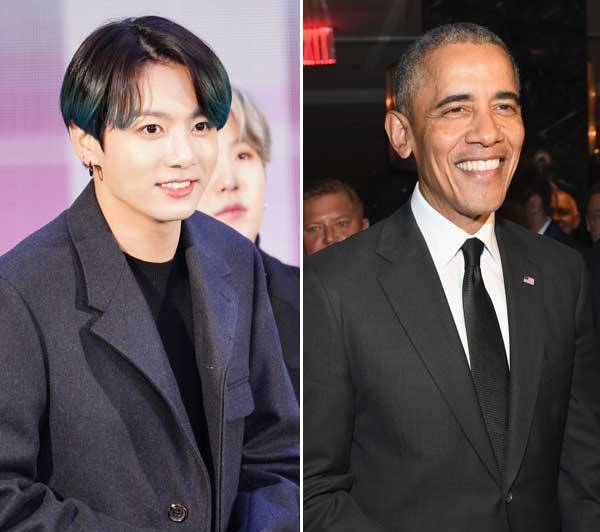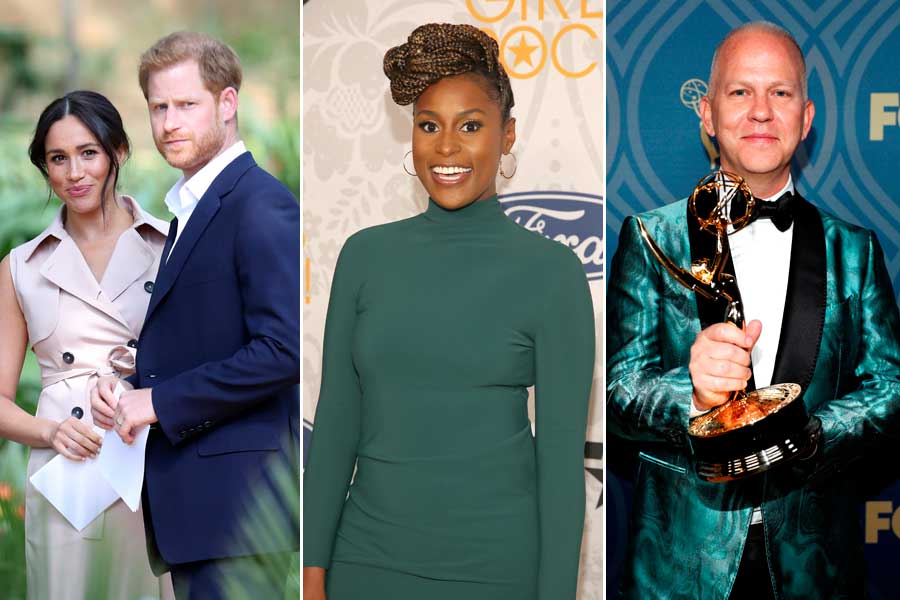BangBang Con, Jungkook, Obama, and Simone Biles



This past weekend, BTS streamed almost 24 hours of past concert and fan club performance footage on YouTube for an event they called BangBang Con, meant to be an alternative to their Map of the Soul: 7 tour which was supposed to have kicked off this month. BangBang Con generated 50.5 million views over two days, peaking at 2.24 million people at its highest point and an estimated total of 6.46 million social media engagements on Twitter and other platforms. The western media hasn’t covered much of this but, as I mentioned last week, there are many people in the industry who are paying attention – especially considering how streaming this kind of content can have a direct impact on sales.
What’s the content? It’s content that’s already there. It’s in the archive. BTS basically just repurposed tour footage and performances that already exist on DVDs that have been available for purchase. So what they did was, for a weekend window, made something they already have in the vault accessible to everyone for free, and it was as simple as pressing a button. And then they watched as their album and singles sales started to climb. Map of the Soul: 7 climbed several spots on the Billboard album chart following BangBang Con, impressive because it’s already been out for eight weeks, and “My Time”, a solo track on MOTS: 7 by Jungkook, has now sold over 100,000 units in the United States, the only Korean idol to reach that milestone in the shortest amount of time.
Over the last two decades, streaming services have disrupted the traditional earnings system in the western market recording industry and labels are constantly trying to figure out new revenue models. BTS meanwhile has been taking them to school.
I watched about half of BangBang Con on each day. Since I’ve never seen them live and since I love a concert film, I wanted to study how they connect with their music and their audience in comparison to western artists. Their energy is at once exhausting and exhilarating. Between the choreography and the vocals – yes, contrary to stereotype, they do sing live – and the moments that are built in deliberately for them to interact with each other and their fans, every show runs almost three hours. Which means there’s value here but also an almost absurd amount of engagement. I’ve spent a stupid amount of money before on shows that barely last 90 minutes and the artist doesn’t say more than five words to the audience. Some of them barely bother to conceal that they’re there for the money. It’s joyless – which is the exactly opposite of what BTS delivers on their stage. They’re singing and dancing like their lives depend on it, with so much jubilation, it makes it even more offensive the western assumptions and dismissiveness that these are manufactured puppets who have no agency. If that’s the case, they’re the best actors in the universe.
On the other side of that energy equation though is output… and when so much is too much. Part of showing your work is also knowing when to take a break. I always think about “Take a Break” in Hamilton, when Eliza and Angelica are pleading with Hamilton to ease off a little, to regroup and recharge, and he insists on maintaining his impossible level of production. What happens is that he ends up encountering Mariah Reynolds – and it’s not the affair that we’re judging here but the fallout from his affair; it ruined his career. We make mistakes when we’re tired. But also, we need to be fresh to be able to access our most creative spaces. BTS has time right now during lockdown to take a break that was never built into the schedule, but is a forced break really a break? Is it really a break when you’re stressed and worried about the future and having to reorganise existing plans and make alternative arrangements? It’s an interesting case study for any pop culture observer, whether or not you’re a fan of the band.
As for Jungkook and his recent record with the song “My Time”, it’s not the only record he holds. He has several, including a record that connects him to President Barack Obama. He and the former president are the only two people to have multiple tweets generating two million likes on Twitter. Jungkook posted the most popular tweet of 2019 when he filmed himself dancing to Billie Eilish’s “Bad Guy”.
For the uninitiated then, this would be a good time for a Jungkook 101. Jeon Jung-kook, aka Jungkook, is BTS’s youngest member, referred to as the “maknae”. “Maknae” is a Korean word for “youngest” in a group. Other examples: Joey McIntyre is the “maknae” of NKOTB, Sekou Doumbouya of the Detroit Pistons is the “maknae” of the 2019/20 NBA (suspended) season, Prem is the “maknae” of the LaineyGossip team. Jungkook is often referred to as the “Golden Maknae” because he’s considered to have all-round talent.
Basically he’s the Simone Biles of BTS. You know how on a gymnastics team, there are gymnasts who specialise in certain apparatus but the all-round champion is the one who can do everything? Simone Biles is the reigning Olympic All-Round champion because she does not have a weakness – she kills it on vault, beam, and floor exercise, and while she may not be the world’s best on the uneven bars, she’s good enough to be basically unbeatable when you put all four scores together.
This is what Jungkook brings to K-pop: he is BTS’s main vocalist but he’s also a member of their dance line and he can rap when he’s called upon. He writes and he produces. And he’s athletic (an asset in K-pop because they do these sports meets, like the way we used to have Battle of the Network Stars here in North America) and he’s attractive (which makes him a fashion focus) and all this is why he’s arguably the most popular member of the band. I mean they’re all super-famous and everyone has a favourite (BTS does not have a Chris Kirkpatrick) but JK appears to be the one to get the most shine, at least by measurable results. Like he once shared that he uses a particular fabric softener and it sold out in Korea for several months. This happens every time he wears something or uses something else.
At the same time, Jungkook is extremely selective about his influence. So to go back to social media and why he’s so dominant, he doesn’t actually use it all that much, at least not publicly. Of all the members of BTS, he’s probably the LEAST active. Which, perhaps, is why when he does post, it goes so massively viral – because it doesn’t happen very often. And this is a Show Your Work thing we talk about alllll the time: the professional value of making people miss you. I’m not sure it’s all that calculated on JK’s part (maybe he just doesn’t feel like engaging that way) but it’s a curious part of his performance of fame, considering that he is the “maknae”, of the generation that was raised on social media, practically lives on social media: that one of social media’s most powerful figures (he shares a social media achievement with Barack Obama, after all) is so sparing about his social media presence, to an almost extreme level, especially in comparison to his cohort.
Of course we all know who does this best: Beyoncé. And we talk all the time here about Beyoncé’s restraint, how she’s wielded it as professional tool to serve her art, shape her brand, and build her mythology. JK’s intentions in this respect may not be quite as sophisticated but, unlike another “maknae” of a boyband, Justin Timberlake, JK already seems to have much more of an instinct for self-control, and it’ll be interesting to see how he accesses it as his career progresses.

